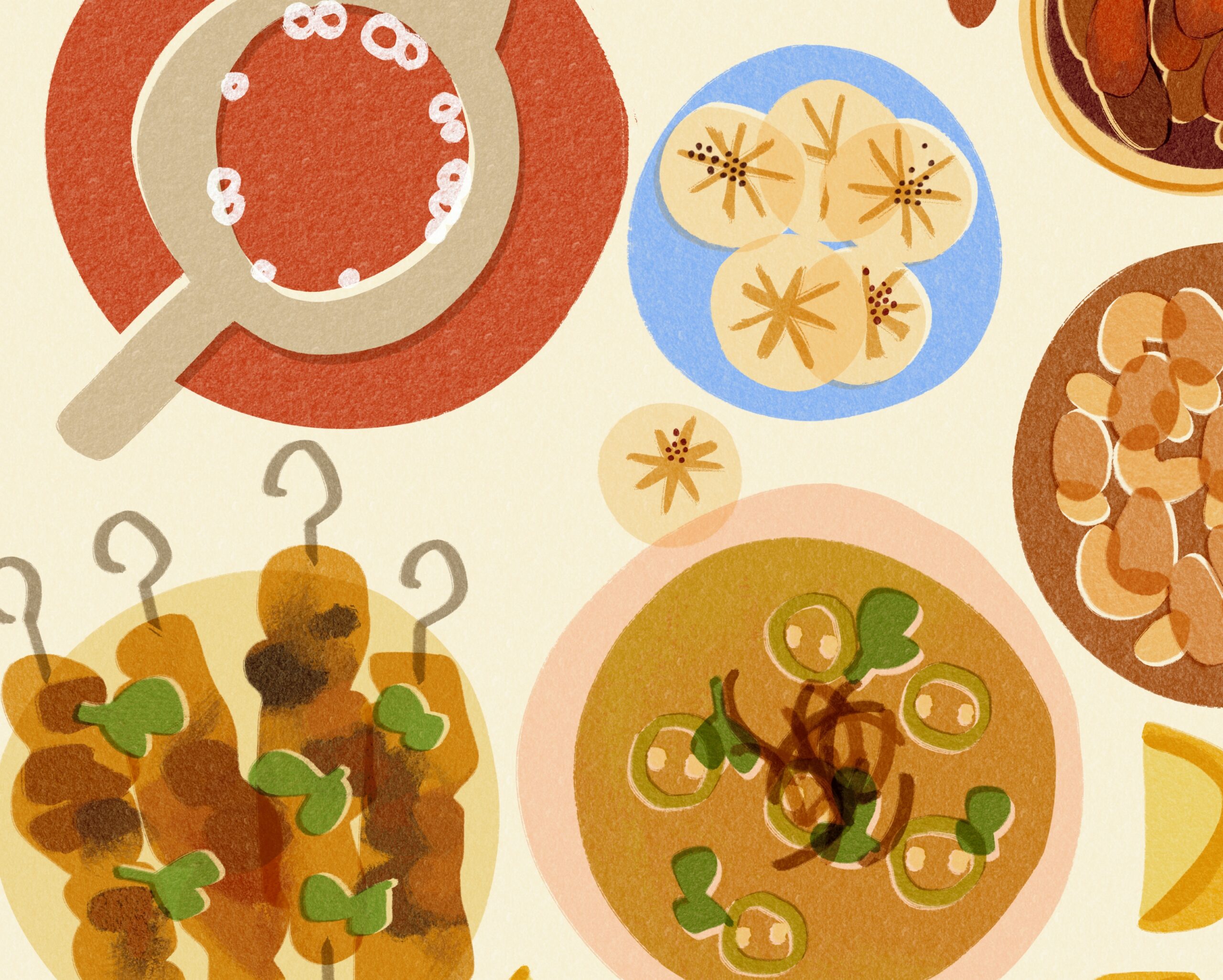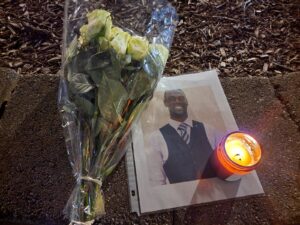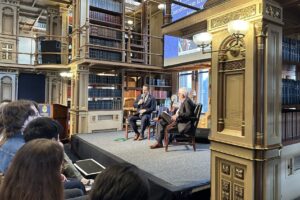When Janeeta Shaukat (SOH ’24) came to Georgetown, she was still working on her understanding of Islam. Although she was born in a Muslim family, she had yet to deeply explore her faith.
Like many students, she faced big questions about her place as a first-generation and low-income student at a school where 74% of students come from the top 20% of earners. She also wrestled with her place in the world, living in the United States while territorial and religious conflict plagued her family’s homeland, Kashmir.
When she turned to religion for answers, it was Georgetown’s Muslim Life that brought her closer to Islam—and it was Islam that brought her peace.
“Through this community, which is very strong, I was able to build that connection with God,” Shaukat said. “I feel like sometimes I don’t know where I would be if Muslim Life didn’t catch me at the right time.”
Muslim Life is one of six faith traditions supported by the Georgetown Office of Campus Ministry—a product of Georgetown’s emphasis on interreligious understanding. They host retreats, social events, and daily prayer services that are supported by student fellows and student-run community groups, like the Muslim Student Association.
Shaukat originally sought out the branch of Campus Ministry after growing curious about Islam as a support system and wanting to learn more about its five pillars, including prayer. Looking for guidance, she reached out to Muslim Life Director Imam Yahya Hendi.
Hendi, who became the first full-time Muslim chaplain at a U.S. university when Georgetown hired him in 1999, spends much of his time advising students like Shaukat when he’s not leading religious services or spearheading community programming.
“It was not easy to start something brand new from nothing,” Hendi said. “I learned from my brothers and sisters in other faith communities, how they do chaplaincy on campuses, and I built something from nothing.”
In his first year at Georgetown, during Ramadan, the Muslim holy month observed through fasting, prayer, and reflection, Hendi hosted an on-campus iftar, the meal eaten at sunset to break the daily fast. Around 20 undergraduate and graduate students attended.
Twenty-five years later, on April 2, the first University Ramadan Celebration and Iftar took place in Leavey Ballroom, based on Muslim Life’s yearly “Fast-a-Thon,” where non-Muslims were invited to fast alongside Muslim community members and share an iftar together. More than 400 attended, and it included a presentation explaining Ramadan’s significance alongside speeches by President John DeGioia, representatives from different campus faith groups, and university officials.
Members of Georgetown’s Muslim community, along with non-Muslim guests, broke their fasts with dates and water after a reminder by Hendi to give food to others before helping themselves.
For Muslim Resident Minister Iman Saymeh, the wide range of diverse backgrounds at the iftar gave her hope.
“They didn’t have to come and wait for the call of prayer,” she said. “They didn’t have to come and wait for all this time, but they did. And that really assures me that there is hope for the future, for humanity to come together even more.”
The iftar’s organizers facilitated fundraising for Life for Relief, an organization bringing humanitarian aid to areas including Gaza, which is on the brink of famine due to restrictions on aid by Israel.
This fundraising aligns with the emphasis put on charity during Ramadan and connects to a core tenet of Hendi’s philosophy: “radical passion for compassion.” As Georgetown’s imam, Hendi has promoted social justice causes at home and abroad, and is committed to interreligious dialogue.
“I feel like without a lot of the work he’s done, there could be more tension between Christians, Jews, and Muslims on campus because of the global climate,” Shaukat said. “But he continues to create spaces where students can come together as students and really talk to each other about religion.”
Hendi has also sought to instill a culture of care for others in students, aiming to make Georgetown’s Muslim community one where anyone can participate.
“We are better at what we do if we can build a strong community where everyone feels at home, where no one feels excluded, no one feels judged,” he said.
Beyond cultivating a vibrant community, Hendi has spearheaded other initiatives to help make the Hilltop feel like home for Muslim students. He worked with dining hall management to bring halal food options to campus starting in 2016. Last December, Hendi also brought 25 students on a trip to Mecca to complete Umrah, an Islamic pilgrimage, while simultaneously fundraising nearly $100,000 to make the event accessible to all.
Last March, Georgetown also inaugurated the Yarrow Mamout Masjid, a mosque with a halal kitchen, a spirituality and formation hall, and an ablution station used for Wudu, the religious ritual of washing before prayer. Before its construction, students prayed in the Copley basement, which was too small even in 1999. Hendi fundraised around $1.4 million over the last 12 years to fund the Masjid, collaborating with university staff.
For him, all this work feels necessary.
“Muslim students wanted to feel at home,” he said. “You feel at home when you feel welcomed, accommodated, and when you feel that this home really cares about providing you with the space of being at home.”
As the Georgetown Muslim community grows in size, Hendi will continue to build out Muslim Life’s programming. He is considering adding an extra Friday prayer service to accommodate everyone who wants to attend and said that the community is empowered by its growth.
“It’s 25 years that went gradually, slowly, but surely,” he said. “Engaging the full community, the larger community, the small community, to have them feel at home in every way that we could, the kind of programs we organized and we continue to organize is quite remarkable.”
Editor’s note: the first line of this story has been updated to better represent Shaukat’s experience.





